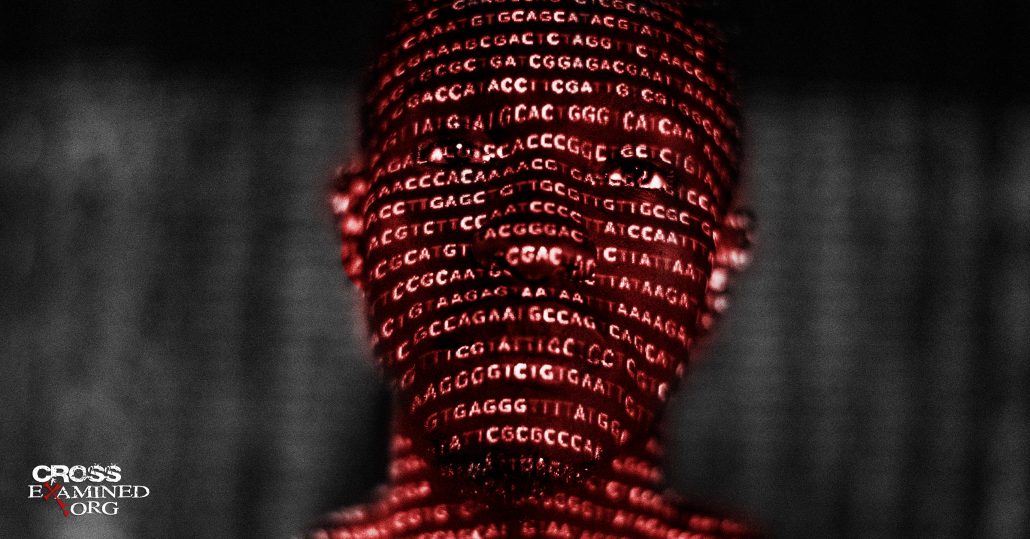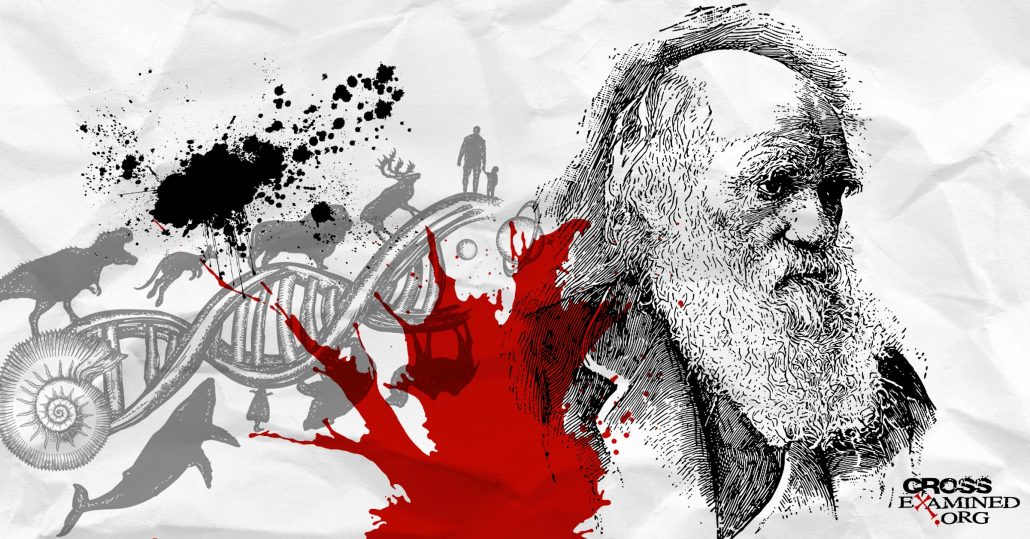By Jonathan Mclatchie
Last week, New Testament scholar Dr. Bart Ehrman published an article at his blog, in which he responded to a reader who had asked him his opinion on a popular approach to arguing for the reliability of the book of Acts. The questioner specifically cites popular apologist Dr. Frank Turek and Acts scholar Dr. Colin Hemer, who have pointed to specific and detailed knowledge demonstrated in the book of Acts that reveal its author to be close up to the facts, well informed and habitually reliable. The questioner noted that “Many of these are insignificant, but others seem to be things ‘only an eyewitness could know,’ like the location of a sailor’s landmark or sea approach to a city.”
Readers who are interested in a presentation of examples of this sort of detailed and specific knowledge shown by Acts may wish to check out this webinar I did with philosopher Dr. Timothy McGrew (which also contains a solid discussion of some of Ehrman’s objections to Acts). This webinar I did with Acts scholar Dr. Craig Keener is also worth checking out. For those more inclined to read written material, I highly recommend Colin Hemer’s book The Book of Acts in the Setting of Hellenistic History, which covers many examples of this. I will also provide a few examples here to give a flavor of the sort of evidence we are talking about. I will list a handful of instances of the titles of local officials that Luke so effortlessly gets right.
Luke gets right the precise designation for the magistrates of the colony at Philippi as στρατηγοὶ (Acts 16:22), following the general term ἄρχοντας in verse 19. Luke also uses the correct term πολιτάρχας of the magistrates in Thessalonica (17:6). He also gets right the term Ἀρεοπαγίτης as the appropriate title for the member of the court in Areopagus (Acts 17:34). He also correctly identifies Gallio as proconsul, resident in Corinth (18:12), an allusion that allows us to date the events to the period of summer of 51 A.D. to the spring of 52 A.D., since that is when Gallio served as proconsul of Achaia. Luke also uses the correct title, γραμματεὺς, for the chief executive magistrate in Ephesus (19:35), found in inscriptions there. Furthermore, when Luke tells us of the riot in Ephesus, he indicates that the city clerk told the crowd that “There are proconsuls” (Acts 19:38). A proconsul is a Roman authority to whom one might take a complaint. Normally, there was only one. So, why does Luke so casually use the plural term (ἀνθύπατοί) here? It turns out that, just at that particular time, there was in fact two as a result of the assassination by poisoning, in the fall of 54 A.D., of the previous proconsul, Silanus (see Tacitus’ Annals 13.1). This, again, is something that would be rather difficult to get right by fluke.
Luke even uses the correct Athenian slang word that the Athenians use of Paul in 17:18, σπερμολόγος (literally, “seed picker”), as well as the term used of the court in 17:19 — Ἄρειον Πάγον, meaning “the hill of Ares”.
Luke also gets right numerous points of geography, sea routes and landmarks. For example, he gets right a natural crossing between correctly named ports (Acts 13:4-5). He names the proper port, Perga, for a ship crossing from Cyprus (13:13). He names the proper port, Attalia, that returning travelers would use (14:25). Luke also correctly names the place of a sailor’s landmark, Samothrace (16:11). He also correctly implies that sea travel was the most convenient means of travelling from Berea to Athens (17:14-15). As I documented in a previous article, Luke even gets the implied location of the island of Cauda correct in Acts 27, despite Ptolemy and Pliny the Elder getting it wrong. And so it goes on and on.
How does Ehrman reply to this argument? He writes,
…I do NOT appreciate Frank Turkey [sic] or Colin Hemer for making the argument, since surely they know better. If they do know better, shame on them for trying to dupe others. If they don’t know better, would someone please tell them to start thinking more clearly?
Unfortunately, in this case as we shall see, it is Bart Ehrman, not Turek or Hemer, who needs to start thinking more clearly. Ehrman asks how we know Acts to be historical reportage rather than legend. He writes,
The traditional answer is that Acts was written by an eyewitness, a person who accompanied Paul on his missionary journeys. The presumption is that if it was written by an eyewitness, then the accounts almost certainly must be historically accurate. I won’t be going into that issue here (of whether eyewitness = accurate), but if you have ever known an eyewitness to an event who got it completely wrong (and if you’re a sentient human being, I bet you have known at least one!) you can immediately see at least one aspect of the problem.
The argument here is actually not that Luke is reliable because he was an eyewitness. Rather, we infer him to be an eyewitness because of, among other things, his demonstrated reliability on so many matters. Luke’s demonstrated meticulousness and detailed accuracy as an historian reveals him to be someone who is close up to the facts, well informed, and habitually reliable. This is best explained by his being an eyewitness. And Luke’s track record of accurate reportage gives us some reason to trust him on matters on which he cannot be directly cross-checked. I discuss some of the reasons why we think Luke was an eyewitness in a previous article, so I will not repeat myself here.
Ehrman notes that,
The reason for thinking Acts was written by an eyewitness is that in four passages in these chapters, the author moves from talking about what “they” (Paul and his companions) were doing to about what “we” were doing. It sounds like he’s including himself in a number of the events as one who was there. The natural conclusion: he was an eyewitness.
This is a simplistic representation of the argument, since there is a lot more to it than that. For a scholarly discussion of why the use of the plural pronoun indicates that the author was an eyewitness, readers may refer to Craig Keener’s commentary on Acts, which covers this in detail. I mentioned in my previous article, for instance, that the “we” pronouns trail off when Paul travels through Philippi, only to reappear in Acts 20 when Paul passes once again through Philippi. This is suggestive that the author had remained behind in Philippi and subsequently re-joined Paul when Paul returned through Philippi.
Returning to the detailed knowledge shown by Acts, Ehrman thinks he has found a flaw in this argument. He writes,
If you can show that the account knows where certain places actually were, and knows details about what were in those places, and landmarks, and so on: doesn’t that show the author must have been with Paul on his journeys? Uh, why would it show *that*?? Wouldn’t it just show that he knew about these locations and what was in them? Wouldn’t you get precisely the same kind of narrative if this was someone who had traveled a good bit himself, or knew others who had, and pieced it all together?
To illustrate this point, Ehrman offers an analogy. He writes,
Suppose in 2000 years someone uncovers a story that describes an event that happened to Professor Bart Ehrman in March 2016. Professor Ehrman taught at the University of North Carolina which was located in a college town named Chapel Hill. That semester he was teaching his course on the New Testament in a large lecture classroom in a building called Hamilton Hall. On the afternoon of March 14, Professor was just leaving his office in Carolina Hall to take the three-minute walk to his classroom, when he heard a massive explosion, and going out of his building he saw that Hamilton Hall had been destroyed in an explosion, killing 172 people. Later investigators discovered that it had been caused by a gas leak.
Now, this future researcher who has uncovered the story decides to look into the archaeological record to see if the account is accurate. He learns that way back then there really was a state called North Carolina, and sees that archaeologists had indeed uncovered a town called Chapel Hill, where there really was a university. More than that, they had excavated the university and had found Carolina Hall and – mirabile dictu – there was an actual map of the campus in the ruins. It turns out one of the major lecture rooms for large classes was a short distance away, within eyesight, in Hamilton Hall. Just as in the story!! Moreover, the records of all the professors from the early 21st century were discovered, and there was a fellow named Bart Ehrman who did indeed teach courses on something called the New Testament, and was teaching one such course in Spring semester, 2016.
BINGO! This story MUST have been written by someone who was a companion of Bart Ehrman who was there to see all these things! How else would he have had all this information about NC, Chapel Hill, the university, Hamilton Hall, Carolina Hall, Bart Ehrman, and a class on the NT that particular semester? And that means Hamilton Hall really was destroyed by an explosion caused by a gas leak, right?
Uh, well, no. Millions of people know about NC, and the existence of Chapel Hill, and that there is a university there. Hundreds of thousands know about both Carolina Hall and Hamilton Hall, and have a general sense of their proximity, and that some fellow named Bart Ehrman teaches NT there. Why would the account of the gas leak-explosion have to be written by someone who was there at the time? Or even someone who knew me? Or someone who observed the event?
Ehrman speaks here as if, in the first century world, the geographical, political, terminological, and other subtle facts that the book of Acts gets right would have been widely and easily known or accessible. However, this is absolutely absurd. The argument for Acts being based on eyewitness testimony is that the book of Acts gets hard things right. Ehrman’s illustration about the University of North Carolina implies a situation where one can easily look up these facts, using modern resources like Google or Wikipedia, and include them in a fictional story. However, in the case of the book of Acts, which was written in a world without the ease of access to information that we enjoy today, Ehrman’s proposed scenario would imply that the author would have had to travel around all of those same places (or at the very least interview people who had been there) and include those very specific facts in an account of historical fiction, a genre that did not even exist at the time. Ehrman’s scenario here is very ad hoc and anachronistic.
A further issue with Ehrman’s statement is his use of the word “must.” None of us are arguing that the evidence proves that Luke was an eyewitness and traveling companion of Paul. We are talking about probabilities, and what best explains the relevant data. It is also not the case that Julius Caesar must have crossed the Rubicon, or that Abraham Lincoln must have emancipated the slaves, though the evidence for those things is very strong.
In Ehrman’s final paragraph, he writes,
I’m not saying that because of this Acts is unreliable historically. I’m saying that if someone wants to argue it is, they need to come up with good arguments instead of completely irrelevant ones. I do understand that if the author had gotten all the geographical information wrong it could be relevant to whether the account was accurate or not; my argument is that getting that kind of information right is not. If Christian apologists don’t see the difference – then I’m afraid I can’t help them.
Now, if all Ehrman meant here is that the correctness of the specific details in Acts doesn’t logically entail the historical truth of the narrative, then I would have to agree (though I do not know anyone who has ever argued that it does). However, Ehrman is here saying something that is much stronger. Here, he is asserting that the arguments in question are “completely irrelevant.” This statement is totally indefensible and is logically impossible, since it cannot simultaneously be relevant if the information is incorrect but completely irrelevant if the information is in fact correct.
We can be charitable here, however, and take him to be speaking colloquially, to mean that the relevance of accurate details in Acts is negligible or not worth speaking of. However, this too is problematic. What is the argument for this? One might conjecture that Ehrman takes it to be part of the background information that Acts is highly realistic fiction, a conclusion he has come to on independent grounds. But how does he arrive independently at this conclusion? In fact, the sort of arguments that Ehrman wields against Acts (such as alleged discrepancies with Paul’s letters) would suggest that it isn’t highly realistic fiction, since on Ehrman’s view Acts is contradicting primary sources for the life of Paul. If the author of Acts went to the trouble of visiting all of the places that he claims Paul travelled to, gathering highly specific information in order to incorporate them into his realistic fictional account of Paul’s travels, why would he also contradict the Pauline epistles, which would have been in wide circulation and therefore much more easily accessible? Ehrman’s standards in regards to those alleged discrepancies are entirely wrong. All of the contradictions Ehrman alleges between Acts and Paul’s letters, as I have documented elsewhere (e.g. see my ongoing series of reviews on this site of Ehrman’s book Jesus, Interrupted) are the result of over-readings, tendentious interpretations, and arguments from silence. The forcefulness that Ehrman ascribes to those, combined with his dismissal of the difficult details Luke gets right concerning geography and other matters as “completely irrelevant” is astounding, and really reveals his unscholarly bias against the New Testament.
To conclude, I do NOT appreciate Bart Ehrman for making the argument, since surely he knows better. If he does know better, shame on him for trying to dupe others. If he doesn’t know better, would someone please tell him to start thinking more clearly? This post by Ehrman represents yet another example of why Ehrman should no longer be taken seriously as a scholarly critic of Christianity, despite his popularity in atheistic and Muslim circles. It is time that Ehrman is called out for his poor scholarship, bad standards, and faulty epistemology. For more on that, I refer you to my ongoing series of reviews at this site of Jesus, Interrupted (part 1, part 2, part 3)
Recommended resources related to the topic:
Cold-Case Christianity: A Homicide Detective Investigates the Claims of the Gospels by J. Warner Wallace (Book)
The New Testament: Too Embarrassing to Be False by Frank Turek (MP3) and (DVD)
Why We Know the New Testament Writers Told the Truth by Frank Turek (mp4 Download)
The Top Ten Reasons We Know the NT Writers Told the Truth mp3 by Frank Turek
Counter Culture Christian: Is the Bible True? by Frank Turek (DVD)
Dr. Jonathan McLatchie is a Christian writer, international speaker, and debater. He holds a Bachelor’s degree (with Honors) in forensic biology, a Master’s (M.Res) degree in evolutionary biology, a second Master’s degree in medical and molecular bioscience, and a Ph.D. in evolutionary biology. Currently, he is an assistant professor of biology at Sattler College in Boston, Massachusetts. Dr. McLatchie is a contributor to various apologetics websites and is the founder of the Apologetics Academy (Apologetics-Academy.org), a ministry that seeks to equip and train Christians to persuasively defend the faith through regular online webinars, as well as assist Christians who are wrestling with doubts. Dr. McLatchie has participated in more than thirty moderated debates around the world with representatives of atheism, Islam, and other alternative worldview perspectives. He has spoken internationally in Europe, North America, and South Africa promoting an intelligent, reflective, and evidence-based Christian faith.
Original Blog Source: https://cutt.ly/Sgp9ucH



 Bethany is on the southeastern slopes of the Mount of Olives. We know Bethany was one of Jesus’ favorite places as it was the home of Mary, Martha, and Lazarus. The Book of Acts tells us that they returned from the Mount of Olives. Luke tells us the ascension happened in Bethany.
Bethany is on the southeastern slopes of the Mount of Olives. We know Bethany was one of Jesus’ favorite places as it was the home of Mary, Martha, and Lazarus. The Book of Acts tells us that they returned from the Mount of Olives. Luke tells us the ascension happened in Bethany. 





